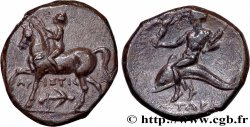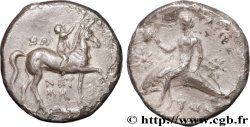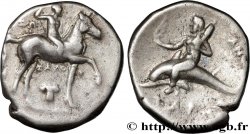E-auction 506-417373 - bgr_593667 - CALABRIA - TARAS Nomos, statère ou didrachme
You must signin and be an approved bidder to bid, LOGIN TO BID. Accounts are subject to approval and the approval process takes place within 48 hours. Do not wait until the day a sale closes to register. Clicking on « bid » constitutes acceptance of the terms of use of cgb.fr private e-auctions.
Bids must be placed in whole Euro amounts only. The sale will start closing at the time stated on the item description; any bids received at the site after the closing time will not be executed. Transmission times may vary and bids could be rejected if you wait until the last second. For further information ckeck the E-auctions F.A.Q.
NO BUYER'S FEE.
NO BUYER'S FEE.
| Estimate : | 380 € |
| Price : | 161 € |
| Maximum bid : | 190 € |
| End of the sale : | 26 December 2022 14:01:30 |
| bidders : | 12 bidders |
Type : Nomos, statère ou didrachme
Date: c. 275 AC.
Mint name / Town : Calabre, Tarente
Metal : silver
Diameter : 20,5 mm
Orientation dies : 5 h.
Weight : 6,43 g.
Rarity : R1
Coments on the condition:
Exemplaire centré. Métal taché au droit. Joli revers avec une petite faiblesse sur la tête de Taras. Patine grise
Catalogue references :
Obverse
Obverse description : Cavalier nu passant à droite, couronnant son cheval.
Obverse legend : AR/ DAMULOS
Reverse
Reverse description : Taras nu, chevauchant un dauphin à gauche, tenant une corne d'abondance de la main droite, un trident et un bouclier orné d'un hippocampe de la main gauche.
Reverse legend : TA-RAS







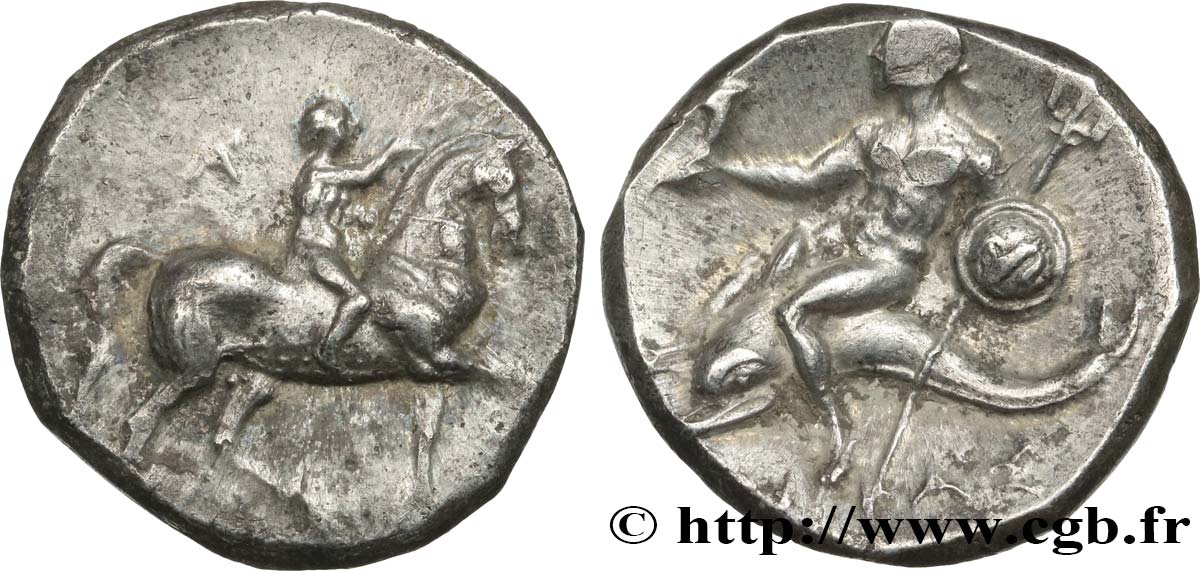
 Report a mistake
Report a mistake Print the page
Print the page Share my selection
Share my selection Ask a question
Ask a question Consign / sell
Consign / sell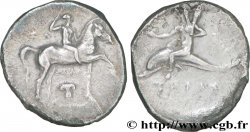
 Full data
Full data
